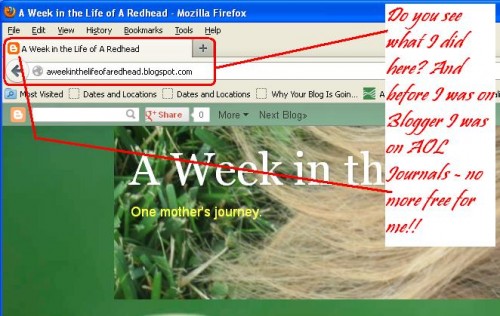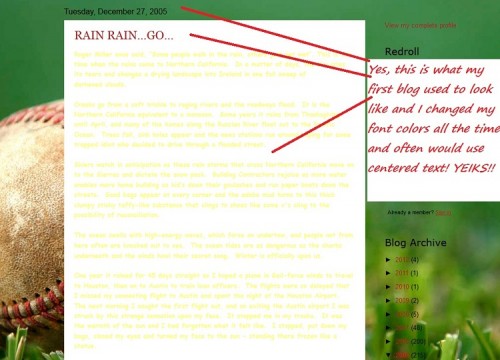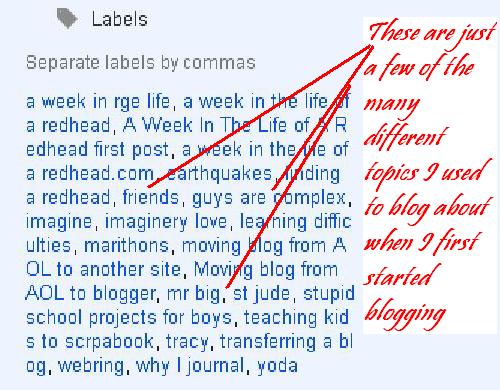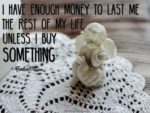Last updated on January 22nd, 2019 at 02:56 pm
 Dreamers want to understand what is it that makes successful dreamers different, how they grow their followers and how they reach millions, while the other 90% of dreamers barely generate enough interest in their dream to get their family interested.
Dreamers want to understand what is it that makes successful dreamers different, how they grow their followers and how they reach millions, while the other 90% of dreamers barely generate enough interest in their dream to get their family interested.
The answer lies in how successful dreamers manage their creations, approach their art, and the difference in attitudes about why they are doing what they feel they have been called to do.
What do I know about this? I have lived the life of both the amateur and professional.
If you want to operate at a top level for what you seek, then you have to pass on the urge to behave like an amateur. And for many dreamers, this is a bitter pill to swallow. They somehow think it will “spoil the integrity of their craft.” (insert visual of water spitting out my nose here).
Let me use blogging as an example.
Amateur vs Professional Blogger–
1. The amateur blogger ignores the basic rules for writing on the Internet.
It’s hard to read on a computer. The light shines back into the eyes, making the reader scan the page looking for content. Large blocks of text, small or creative font, colored font, colored backgrounds — all interfere with the visitors ability to read your writing. Stop making it so difficult. Your blog should read like a well laid out report with subheadings, numbers and bullet points so that the reader sees quickly what your story is about.
Centered text is for printed invitations –not for the Internet. Think about why books are published in black ink on white paper in a simple, easy-to-read typeset. Eyes love to rest in white space. If you want your readers to actually read what you write, then make it easy.
Stick with black writing on a white background.
Amateur bloggers will ignore these suggestions because they think a blog should look like an art project with plenty of distracting visuals and colors.
Forget that visitors come to R E A D.
2. The amateur blogger writes stories that can be found in any number of diaries throughout the world.
Women bloggers are famous for writing blogs that read like pages out of someone’s diary instead of sharing a compelling story. Yet women wonder why there are so many men in the top blogging spots.
Contrary to popular belief, professional blogging is not downloading your every thought and emotion. Top bloggers plan their blog posts well in advance of when they publish them. If they write from personal experience, they share the lessons they have learned with their niche readers, but their blog is not the place where they share their entire life story down to when their daughter first sat on a toilet seat.
They forget to ask “Why am I writing this?”
3. The amateur blogger changes their writing subject every time they get bored.
Amateur bloggers refuse to stick to one subject so that they develop a following. They write about everything and anything. It doesn’t matter if the reader is confused or isn’t interested in what the blogger is writing about.
If it is something that currently interests the blogger, then they naturally assume readers “out there” are just going to love it. In three months (or less) they run out of steam and wonder why they can’t think of anything to write about.
If you write about everything, you eventually end up writing about nothing.
4. The amateur blogger refuses to look at blog statistics.
The amateur blogger doesn’t want to know the truth about the audience they are not reaching or how little traffic might be visiting. They believe that by simply writing and hoping, the general public will some how find them and adore them forever. If their writing is good enough people will magically keep coming back for more.
Statistics aren’t for the amateur.
They are something only business websites use. Why bother understanding the interaction (or lack thereof) on your blog?
Because you might have to face the truth and change.
5. The amateur blogger treats their blog one dimensionally, instead of like a magazine.
Blogs are basically magazines and if you’ve picked up a magazine lately and thumbed through it you may have noticed all the different styles of articles that are covered under one topic. A blog needs to offer a variety of styles for several reasons:
There are magnet posts (posts specifically written to attract new readers), controversial posts (posts written to gauge how passionate your readers are about your niche topic), list posts (posts written to help visitors easily find other content on the Internet), image posts (posts written to help your blog be found in image searches), informational posts (posts written to reveal how you are the subject matter expert in your niche topic), emotionally vulnerable posts (posts written to help form a bond between you and your blog reader), and more.
Top bloggers write in these different styles while remaining on blog topic. The amateur blogger will never think about the different styles of blog posts that need to be written in order to expand their reach beyond family and friends.
6. The amateur blogger ignores the value of an About Me page, Contact page and commenting system that isn’t moderated.
Amateur bloggers don’t get that readers want to know who the blogger is and how to contact the writer of the blog. Providing this information builds trust. Amateur bloggers invent cute names for themselves and make it difficult for readers to comment or contact them. It’s like the amateur blogger wants readers, yet repels them by hiding who they are, how to contact them, or by moderating the comments.
All this screams that the blogger doesn’t value or trust readers and has absolutely no interest in getting to know them.
7. The amateur blogger refuses to study blogging or learn basic programming, like html.
All the amateur blogger needs to do is write something and hit publish, right? Everything will just naturally take care of itself, right? Wrong. It is necessary to understand Internet marketing, copy-writing, guest blogging, networking in blogging communities and social networks, keyword research, and html code (so you can fix your blog when it is fighting with you).
But if you are an amateur then all of this will seam too overwhelming, or at best, unnecessary. Amateurs believe that none of this matters because they are writers and the writing is the most important thing. You will get there purely on your writing skills, right? Forget about your images being prepped for the web, sized properly with ALT tags.
To the amateur blogger this unnecessary stuff just takes up too much time.
8. The amateur blogger references song lyrics like poetry in their blog posts.
Women bloggers are famous for this and it’s illegal. Lyrics are one of the three parts of a song that are copyrighted. You cannot use them without permission. Besides, when the amateur blogger gets better at blogging they will look back on lyric infused posts and cringe at how cornball they look. Lyric posts tend to come about when bloggers are being hormonal, drinking, or over-emotional.
It’s never good. Write your own poetry instead, and leave the song lyrics to high school teenagers.
9. The amateur blogger uses free blogging platforms and free blog themes.
If you want to move up from forever being considered an amateur blogger then you are going to have to bite the bullet and buy a domain name, hosting, and set up a proper blog. Purchase a blog theme and work with a graphic designer to create a brand logo. Don’t build your empire solely on a platform that you don’t control.
Remember Myspace? AOL Journals? Blogspot? No?
Managing your own blog gives you complete control over what happens to your writing. You wouldn’t set up your business in the basement of a random retail outlet store, so why would you set up your blog on someone else’s platform? Amateur bloggers will believe that they are somehow exempt from this rule and they can become a top blogger using free platforms and templates.
Silly rules weren’t meant for them…
 While top bloggers take responsibility for the success or failure of their blogging efforts, amateur bloggers often blame everything on circumstances “beyond their control.” They give up too easily and never push themselves beyond where they are comfortable with their writing. And it’s sad when it all fails.
While top bloggers take responsibility for the success or failure of their blogging efforts, amateur bloggers often blame everything on circumstances “beyond their control.” They give up too easily and never push themselves beyond where they are comfortable with their writing. And it’s sad when it all fails.
Successful dreamers understand that they have to keep pushing their limits to be the best. They are never satisfied and continue making changes to improve every little nuance of their creation.
My advice on how to be a successful dreamer is to not fight the basic rules and practices set up by the professionals in your industry. Follow them. Watch what they do and stop resisting what you think won’t work with your creative style. Be open to the possibility of change.
Forget the rigid rules you learned in school and stop saying no to every suggestion because you are afraid, or too proud. Top dreamers take big risks. They are not afraid to fail and appear foolish. Be open to foolishness.
Go with the dreaming flow.
Approach your dream like the actor, film producer, director, and martial arts expert, Bruce Lee approached life:
“Be like water making its way through cracks. Do not be assertive, but adjust to the object, and you shall find a way around or through it. If nothing within you stays rigid, outward things will disclose themselves. Empty your mind, be formless. Shapeless, like water. If you put water into a cup, it becomes the cup. You put water into a bottle and it becomes the bottle. You put it in a teapot, it becomes the teapot. Now, water can flow or it can crash. Be water, my friend.”
Become your dream, dreamers.
And be successful.
Catherine Hughes
Be a success online!
[fbcomments]

Catherine Hughes is an accomplished magazine columnist, content creator, and published writer with a background as an award-winning mom blogger. She partners with companies to create captivating web content and social media stories and writes compelling human interest pieces for both small and large print publications. Her writing, which celebrates the resilience and achievements of Northern California’s residents, is featured in several magazines. Beyond her professional life, Catherine is passionate about motherhood, her son, close friendships, rugby, and her love for animals.
Note: Articles by Catherine may contain affiliate links and may be compensated if you make a purchase after clicking on an affiliate link.







